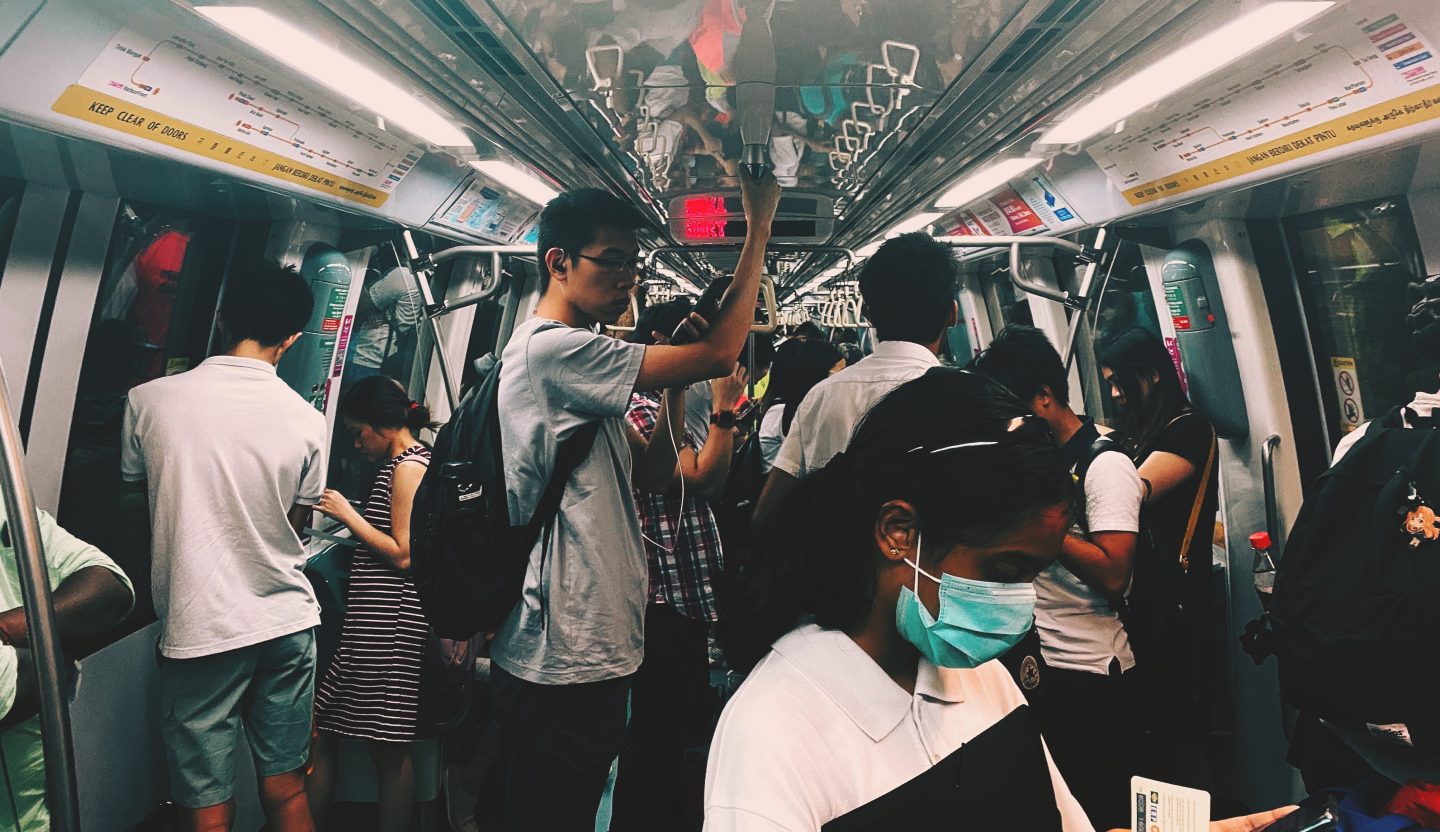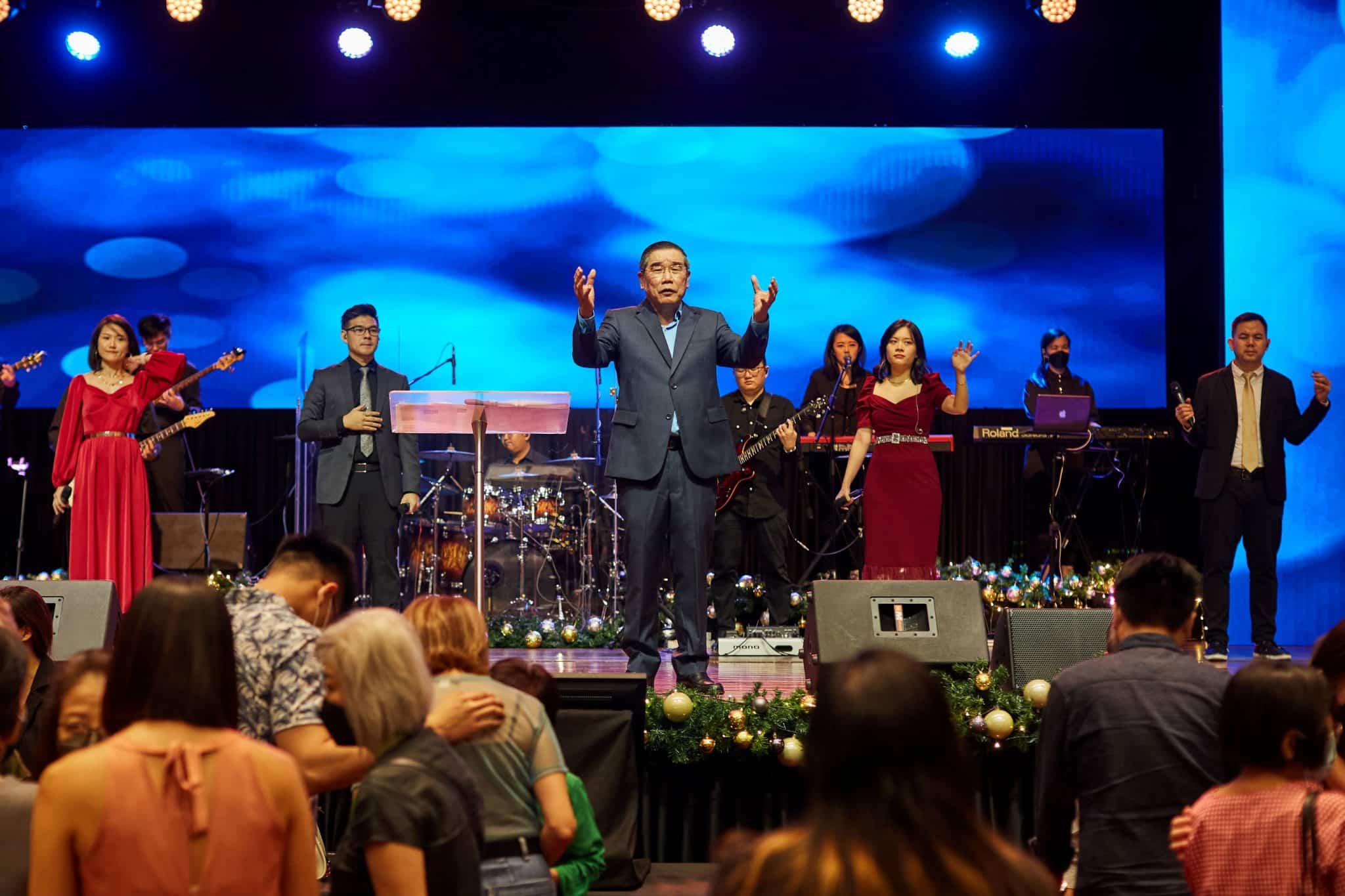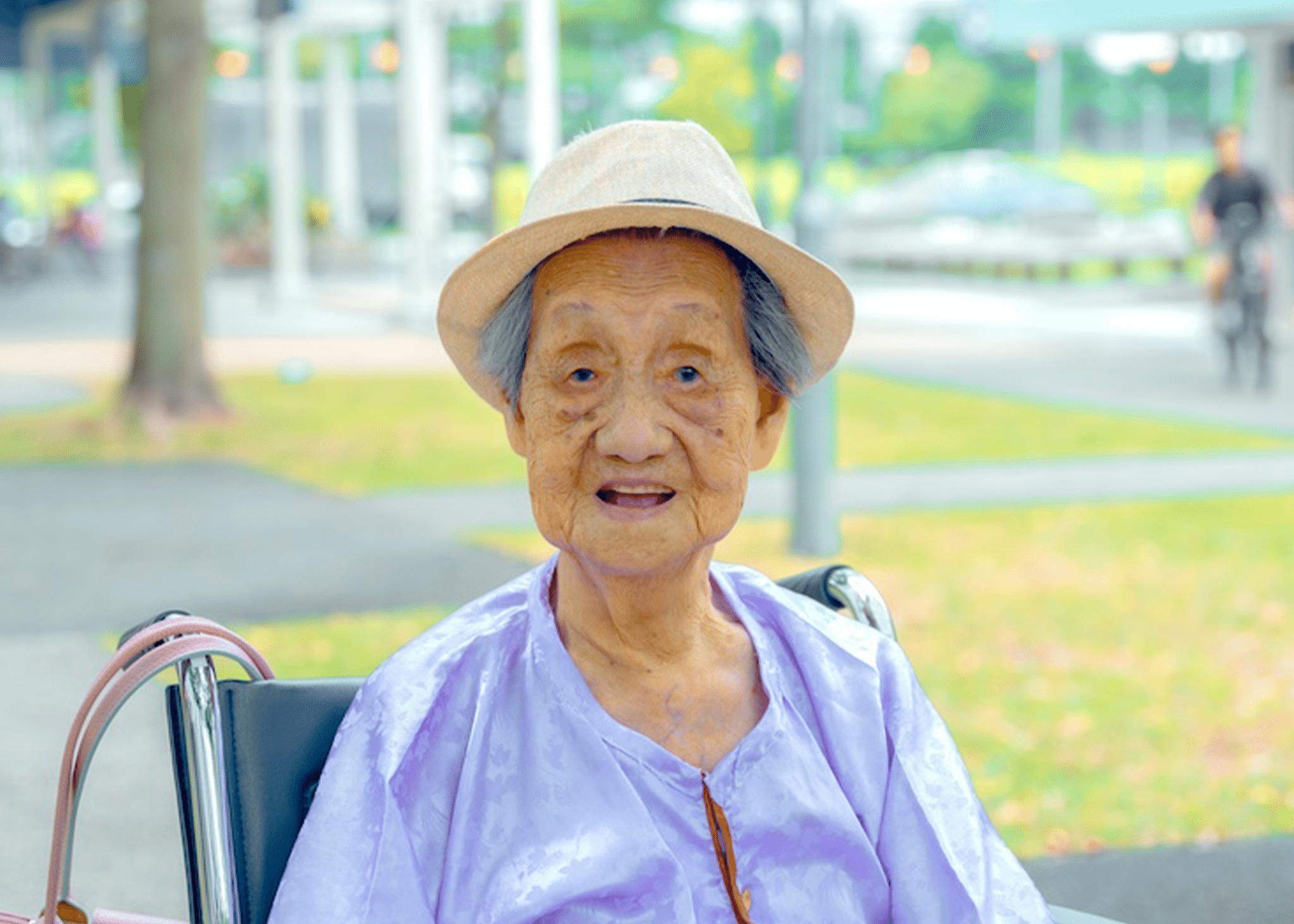
Photo by Keith Yap on Unsplash
The current worldwide coronavirus pandemic we are experiencing could become the defining moment of the 21st century as the greatest challenge confronting humanity since the Second World War.
Epidemiology has become a way to remind us of our common humanity. It could be a wake-up call to a changing and indeed changed reality of a truly global village.
As Jim Wallis puts it succinctly: “We are all neighbours now”.
There are four themes we can reflect on in terms of this COVID-19 crisis and the impact and implications on global missions. I will list them simply as the 4Cs: The city, the Church, Christian spirituality and the community.
1. The city
This pandemic has its beginnings in cities, in Wuhan, the gateway cities of Asia or in the West, where the trajectory of the virus spread from cities to countryside. Densely-populated cities have shown themselves to be the most vulnerable and conducive to such viral spread.
As the urban-rural migration began in reverse with the lockdown, city folks found themselves unknowing agents of the viral spread.
The urban poor are bearing the brunt of the crisis, left without jobs and income and faced with hunger and starvation.
In global cities such as Singapore and Hong Kong, which are diverse and cosmopolitan, and also hubs for regional as well as global air travel, the problem is compounded. It has been reported that the cities which tend to be the most polluted will also be the worst-hit. Another reason for environmental care in urban settings.
Singapore, as a small but global city, is especially vulnerable as a third of our population consists of foreigners or migrant workers living among us.
We faced great challenges in containing the pandemic among migrant workers or even meeting needs of housing Malaysian workers left stranded in Singapore after Malaysia announced the lockdown. In just a week, thousands of migrant workers in their cramped dormitories were diagnosed positive for the COVID-19 virus.
We have highlighted the importance of urban missions in the cities in the 21st century as cities have sprouted all over Asia in the past three decades.
The unreached people groups are in the cities. And they are among the urban poor.
However churches, including Singapore churches, are slow to engage in urban missions, as the idea of the 10/40 window or the UPG (unreached people groups) model still lingers, calling for missionaries to be sent to the mountains and villages.
The unreached people groups are in the cities. And they are among the urban poor.
As countries from India to the Philippines imposed country-wide lockdown, the urban poor are bearing the brunt of the crisis as they are left without jobs and income, and those living in urban slums are faced with hunger and starvation without means to forage for food in the streets.
It is time to engage the Unreached People Groups (UPGs) among us in the cities as the urban poor, by providing them firstly with jobs, shelter and food, and then along with these, the Gospel of love and life.
2. The Church
It is interesting that the first concerns of the church community included the possible shutdown of the church programmes, be it the worship services or the fellowship meetings.
When the services were suspended, it was a few weeks too late after two church clusters had been identified, and weeks after the Roman Catholic churches and the mosques had announced their own cessation of services and gatherings in preventive measures. This was the first time that the Holy Week was observed without the usual communal gatherings.
Christians cannot be living only for church programmes and activities in a religious ghetto.
Interestingly, Christians were viewed outside the church community as a superstitious bunch who are adamant on going to church despite the crisis.
After the live services were suspended, the energy of the Church was initially channelled towards the live-streaming of services amidst empty pews and production of sermons to be distributed electronically to church members for their weekly consumption.
Suddenly, the church became a Christian broadcast or media ministry competing for online audiences. Some churches were quick to send cards to affirm healthcare workers and coffee to encourage front-liners providing essential services. But it took a while before a few brave churches responded to the community’s cry for housing the homeless or serving the migrant workers through food delivery services.
This pandemic thus challenges the Church to examine its reason for existence, to ask what it means to be a church and how to bear witness to the message of the Gospel as God’s royal priesthood, a holy nation and God’s own people whom He has called out.
As we live in the cities and indeed in a global village, we realise that “we are all neighbours now”. This was also the theme SCGM adopted for our Urban Mission Forum in 2016.
Christians cannot be living only for church programmes and activities in a religious ghetto. We must grasp the times we live within history and grapple with our mission in this divine milieu.
Prayer is the action before the action.
How do we love our neighbours and serve our community in an urban setting where the social profile is diverse, stratified and complicated? Especially in times when pandemic, poverty, hunger, fear and anxiety are raging and possible economic and political crises are hovering above the horizon, how do we watch and pray?
Prayer is the action before the action. What action must be taken now and next to be witnesses as an eschatological community which we are? Old wineskins may burst as new ones emerge to define how we live, work and play.
In one fell swoop, we may suddenly realise that we are capable of radical responses and rapid change in the way we behave, relate and think. This may be great to help us become open to reconsider the existential question: How should we then live in these times?
Hopefully, the Church may also realise the ontological reason for our being, beyond existing institutionalised religiosity and personalised spirituality, to embrace the call to engage and serve the larger community.
Personal piety and holiness may finally reach beyond the four walls of the church buildings to spill into the community in social holiness. Prayerfully, the Church does not stop at merely evangelising souls in such times of crisis but goes beyond this to provide a more holistic and practical ministry.
When the Church engages the community, the city in these ways, at street level, then we can truly become the whole Church in the whole world.
3. Christian spirituality
As the Church collective is prevented from gathering en masse to proclaim our faith, it is an opportunity for Christians to examine our own spirituality, especially in a “stay home” mode.
It is a great time to assess our spiritual cultivation, or the lack of it, either individually or as a family, or as a cell group or ministry team. The ways we relate within the family and without can be an indicator of our spirituality. We are more than a family, a social group or a work team.
Our spirituality must flow from our private prayer and Bible meditation into community witness and social action.
Our spirituality must stem from our calling as God’s New Creation, the vision and values of humanity revealed to us in Christ. We are a people called to “practise resurrection”, as Eugene Peterson puts it. Hence, we must be rooted in faith, hope and love as an eschatological community, as pilgrims and sojourners living out our witness.
We need strength to love and peace in facing pain and hardship, and endurance in suffering and even death.
As Reinhold Niebuhr reminded us: “Protestantism has no monastic movement.” Our cultivation of holiness must be personal but not for private perfectionism or moral idealism. Our spirituality must be evidenced in “social holiness” as Wesleyan spirituality emphasises.
In other words, our spirituality must flow from our private prayer and Bible meditation into community witness and social action, where Christ’s teaching to love our neighbour, as the Good Samaritan did, must become our ethos.
Quiet ways of serving with grace and truth may become a louder demonstration of the Word becoming flesh in the world.
Acts of social concern and compassion are evidence of great religious spirit and Christians must begin to demonstrate Christian love and compassion stemming from our spirituality, without the agenda or need to convert others per se.
When we practise our holiness, Christ reminded us to do it unto God in private, not as the Pharisees do for social acclaim. In these times of pandemic, it is an opportunity for Christians to empathise and pray for those afflicted with the illness. It is also an opportunity for us to practise caring for those affected through practical acts of generous giving, helping and serving in different ways we can.
Perhaps we have been proclaiming the Word enough already, so much so that these quiet ways of serving with grace and truth may become a welcome change and a louder demonstration of the Word becoming flesh in the world. And as we persist beyond a church programme to become a lifestyle, such acts of loving service may become the “fruits of the Spirit” incarnate in our community.
4. The community
This COVID-19 crisis has revealed for us serious social divides and injustices. We have all been indicted for darting across the street to avoid the pain. But times of pain and suffering can be great ways to realise our common humanity and to build community.
These are times where we can begin to relate with one another in new ways as human beings.
It is so interesting to see how individuals of different ethnicity and faiths, and even nationalities, face and live through imposed lockdowns. These shared experiences of despair and distress can reveal the depth of spirituality and perspectives different from us. It is an opportunity for us to engage and embrace one another and dialogue with one another as we exchange practical tips from cooking recipes, to ways of keeping our minds, bodies and spirits healthy.
Extraordinary times call for extraordinary measures, and these are times where we can begin to relate with one another in new ways as human beings. Such as reaching out to one another with greater respect and courtesy, with meekness and gentleness, in truly I-Thou relations across social and cultural divides. This will be our way of combating pride and prejudices seen in some places where people are retreating into ethnic and national enclaves out of fear and dread.
We must actively find ways to express agape love to our neighbour, which is the foundation for building communities. For Christians, our acts of Christian love must go beyond neighbourly nicety to responsible social action and even political engagement. We need to input to policies for the common good. As Niebuhr noted: “The witness of love requires that love of the neighbour be transmuted into justice … without such competence the Christian faith as a gospel of love, will degenerate into sentimentality.”
Hopes for the future
It is clear that the world will never be the same again after COVID-19. We have gone through “the shaking of the foundations”.
We are an eschatological community called to a mission in this world, not limited to organising activities within a building.
We pray that we will begin to see the importance of the city as a mission field and as a harvest field, and find ways to engage and care for it with all the social, political, economic and environmental challenges within.
We also pray that the church will realise that we are an eschatological community called to a mission in this world, not limited to organising activities within a building or location. We need to make our ministry practical, responsible and relevant in a holistic way.
We pray that our Christian spirituality will be cultivated and adequate as sojourners, pointing people to the vision and values of the new creation in Christ. Finally, we pray that through this shared experience, we can touch base with the larger humanity, to engage and embrace others who may be different from us.
As Good Samaritans, we must traverse and cross the dangerous road and learn to cross barriers which prevent us from loving our neighbours … because we are all neighbours now.
This reflection was first posted by the Singapore Centre for Global Missions (SCGM), and has been republished with permission.
We are an independent, non-profit organisation that relies on the generosity of our readers, such as yourself, to continue serving the kingdom. Every dollar donated goes directly back into our editorial coverage.
Would you consider partnering with us in our kingdom work by supporting us financially, either as a one-off donation, or a recurring pledge?
Support Salt&Light



